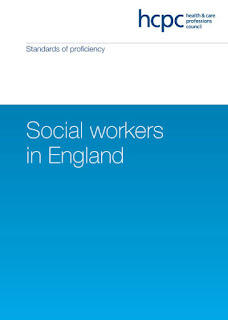Hollie Latham, HCPC Policy Officer talks about the revised Standards of proficiency (SOPs) for social workers in England, how they were reviewed and what the changes mean for registrants.
What are the SOPs?
The HCPC have revised the Standards of proficiency for social workers in England. The standards set out the threshold knowledge, understanding and skills required for a social worker at entry to the Register. The main way we use these standards is when we approve pre-registration social work programmes which lead to registration with us.
Once registered, we expect all social workers to continue to meet the standards which are relevant to their scope of practice.
How did we review them?
These standards were first published in 2012, and we review them regularly. The most recent review included engaging with stakeholders such as professional bodies, employers, education providers, charities, service users and carers and newly qualified social workers via surveys and group discussion sessions. We then held a three month long public consultation and received 125 responses.
What’s changed?
There are a limited number of changes to the document itself, including some minor amendments to standards, and a small number of new standards in order to reflect developments in both education and practice.
New standards include:
• Be able to identify and apply strategies to build professional resilience.
• Understand the principles of information governance and be aware of the safe and effective use of health and social care information.
• Understand the concept of leadership and its application to practice.
What does this mean for social workers?
Social workers need to continue to meet the standards of proficiency which are relevant to their particular scope of practice. However, we don’t dictate how they should do so. There is generally more than one way in which each standards can be met and the way in which registrants meet them may change over time due to technology and evolving methods of practice.
We often receive questions from registrants concerned they may not meet our standards. As an autonomous professional you need to make informed and reasoned decisions about your practice. This can mean seeking advice or support from education providers, employers, colleagues, professional bodies, unions and others. So long as registrants do this and can justify their decisions in practice if asked, it is very unlikely that a registered social worker would not meet our standards.

